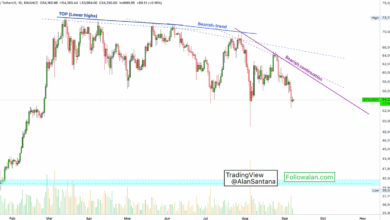10 Revolutionary Blockchain Software Solutions for Business Growth

In today’s rapidly evolving digital landscape, blockchain software solutions have emerged as transformative technologies that are revolutionizing how businesses operate, grow, and compete in the global marketplace. As we navigate through 2025, enterprise blockchain solutions are no longer experimental technologies confined to cryptocurrency applications – they have become essential tools for business growth and operational efficiency across diverse industries.
The blockchain technology ecosystem has matured significantly, offering robust platforms that address critical business challenges including supply chain transparency, data security, financial transactions, and digital identity management. Forward-thinking organizations are leveraging these blockchain platforms to streamline operations, reduce costs, enhance security, and create new revenue streams that drive sustainable growth.
Blockchain software solutions provide unprecedented levels of trust, transparency, and traceability that traditional centralized systems simply cannot match. From smart contracts that automate complex business processes to decentralized applications that enable peer-to-peer transactions, these revolutionary technologies are reshaping entire industries. Whether you’re managing supply chains, processing payments, or securing sensitive data, blockchain solutions offer immutable records and cryptographic security that build stakeholder confidence.
The adoption of blockchain development initiatives has accelerated dramatically, with enterprises recognizing the competitive advantages these solutions provide. Distributed ledger technology eliminates intermediaries, reduces transaction costs, and enables real-time verification of assets and transactions. This technological revolution is particularly impactful for businesses seeking to enhance operational transparency, improve customer trust, and expand into new markets.
As we explore ten revolutionary blockchain software solutions, you’ll discover how leading organizations are implementing these technologies to drive measurable business growth, improve operational efficiency, and gain competitive advantages in their respective markets.
1. Hyperledger Fabric: Enterprise-Grade Blockchain Infrastructure
Hyperledger Fabric stands as one of the most robust enterprise blockchain solutions available today, specifically designed for businesses requiring permissioned networks with enhanced privacy and scalability. Version 3.0 of Hyperledger Fabric, released in September 2024, added support for Byzantine fault tolerance and operational improvements, making it an even more compelling choice for enterprise deployment.
Key Features and Business Benefits
This blockchain platform offers modular architecture that allows organizations to customize their blockchain networks according to specific business requirements. The platform supports smart contracts written in multiple programming languages, including JavaScript, Java, and Go, enabling developers to leverage existing skills and accelerate blockchain development timelines.
Hyperledger Fabric excels in scenarios requiring high transaction throughput and low latency, making it ideal for supply chain management, healthcare records, and financial services applications. The platform’s permission-based access controls ensure that sensitive business data remains secure while enabling selective transparency across network participants.
Implementation Strategies for Business Growth
Organizations implementing Hyperledger Fabric typically see significant improvements in operational efficiency through automated verification processes and reduced manual reconciliation efforts. The distributed ledger technology eliminates the need for trusted intermediaries, reducing transaction costs and settlement times from days to minutes.
Real-world applications include Walmart’s food traceability system, which tracks products from farm to shelf, enabling rapid identification and containment of contamination sources. This implementation demonstrates how blockchain software solutions can enhance consumer safety while reducing operational risks and regulatory compliance costs.
2. R3 Corda: Financial Services Blockchain Platform
R3 Corda represents a specialized blockchain platform designed specifically for financial institutions and regulated industries. Unlike traditional blockchain networks, Corda focuses on privacy and regulatory compliance, ensuring that transaction details are shared only with relevant parties while maintaining the integrity benefits of distributed ledger technology.
Revolutionary Approach to Financial Transactions
The platform’s unique architecture eliminates the global broadcast requirement common in other blockchain networks, instead implementing a need-to-know information sharing model. This approach significantly enhances privacy while maintaining the auditability and immutability that make blockchain technology valuable for financial applications.
R3 Corda supports complex financial instruments and regulatory requirements through its smart contracts capability, called CorDapps (Corda Distributed Applications). These applications can model sophisticated financial agreements, automate compliance procedures, and enable real-time settlement of trades and payments.
Driving Growth in Financial Services
Financial institutions leveraging R3 Corda report substantial reductions in settlement times, from traditional T+2 or T+3 cycles to near-instantaneous settlement. This improvement in operational efficiency directly translates to reduced counterparty risk, lower capital requirements, and improved cash flow management – all critical factors for business growth in the financial sector.
Major implementations include JPMorgan’s JPM Coin for institutional payments and the Interbank Information Network, which processes over $1 trillion in daily transactions. These real-world applications demonstrate the platform’s capability to handle enterprise-scale financial operations while maintaining regulatory compliance.
3. Ethereum Enterprise: Smart Contract Powerhouse
Ethereum Enterprise has evolved into a cornerstone blockchain software solution for organizations seeking to implement sophisticated smart contracts and decentralized applications at scale. The platform’s mature ecosystem, extensive developer community, and proven track record make it an attractive choice for businesses exploring blockchain-powered automation and tokenization strategies.
Enterprise-Ready Features and Capabilities
The Ethereum Enterprise ecosystem offers enhanced privacy features, improved scalability through Layer 2 solutions, and enterprise-grade security measures that address the unique requirements of business applications. The platform supports complex smart contracts that can automate multi-party agreements, manage digital assets, and facilitate trustless business processes.
Blockchain development on Ethereum benefits from extensive tooling, libraries, and frameworks that accelerate application development and deployment. The platform’s native programming language, Solidity, has become the de facto standard for smart contract development, ensuring access to a large pool of qualified developers.
Transforming Business Operations Through Automation
Organizations implementing Ethereum Enterprise solutions achieve significant operational efficiencies through automated contract execution, reduced manual oversight requirements, and elimination of intermediary fees. Smart contracts can automatically execute payments upon delivery confirmation, manage supply chain milestones, and enforce compliance requirements without human intervention.
Notable enterprise implementations include Microsoft’s Azure Blockchain Service, which enables organizations to deploy and manage blockchain networks with enterprise-grade security and compliance features. These implementations demonstrate how blockchain platforms can integrate seamlessly with existing enterprise infrastructure while providing revolutionary automation capabilities.
4. IBM Blockchain Platform: Comprehensive Enterprise Solution
IBM Blockchain Platform offers a complete enterprise blockchain solution that combines IBM’s enterprise-grade infrastructure with Hyperledger Fabric technology. This comprehensive platform provides businesses with the tools, support, and scalability needed to implement mission-critical blockchain applications across diverse industries and use cases.
End-to-End Blockchain Development and Deployment
The platform provides integrated development tools, pre-built templates, and managed services that significantly reduce the complexity and time required for blockchain development projects. Organizations can leverage IBM’s extensive consulting services and industry expertise to design, implement, and optimize blockchain solutions that align with specific business objectives.
IBM Blockchain Platform includes advanced analytics, monitoring, and governance capabilities that enable enterprises to maintain operational visibility and control over their blockchain networks. The platform’s hybrid and multi-cloud deployment options ensure flexibility while maintaining security and compliance requirements.
Accelerating Digital Transformation and Growth
Businesses utilizing IBM Blockchain Platform report faster time-to-market for blockchain initiatives, reduced development costs, and improved project success rates. The platform’s enterprise support and professional services help organizations navigate complex technical and regulatory challenges while maximizing the value of their blockchain software solutions investments.
Real-world success stories include Maersk’s TradeLens platform for global shipping, which connects shippers, ports, customs authorities, and logistics providers on a shared blockchain network. This implementation demonstrates how comprehensive blockchain platforms can transform entire industry ecosystems while driving significant operational improvements.
5. Hedera Hashgraph: High-Performance Consensus Platform
Hedera Hashgraph introduces a revolutionary consensus mechanism that offers superior performance, security, and fairness compared to traditional blockchain architectures. This blockchain platform utilizes directed acyclic graph (DAG) technology to achieve consensus without the energy-intensive mining processes common in other distributed ledger technology implementations.
Breakthrough Performance and Scalability
The platform achieves transaction throughput of over 10,000 transactions per second with finality in seconds, making it suitable for high-volume business applications that require real-time processing. Hedera Hashgraph’s consensus algorithm provides mathematical certainty of transaction ordering and timestamps, eliminating the possibility of forks and ensuring absolute finality.
This blockchain software solution offers predictable fee structures and low transaction costs, making it economically viable for micro-transactions and high-frequency business processes. The platform’s energy efficiency aligns with corporate sustainability goals while maintaining enterprise-grade security and performance.
Enabling New Business Models and Revenue Streams
Organizations implementing Hedera Hashgraph can explore innovative business models that were previously impractical due to technological limitations. The platform’s capability to handle millions of transactions cost-effectively opens opportunities for tokenization, micropayments, and real-time asset tracking across global supply chains.
Major enterprise adoptions include Google, IBM, and Boeing as governing council members, demonstrating institutional confidence in the platform’s technology and governance model. These partnerships highlight how blockchain platforms can attract enterprise investment while maintaining decentralized governance structures.
6. Quorum: Privacy-Focused Enterprise Blockchain

Quorum, originally developed by JPMorgan and now managed by ConsenSys, represents a privacy-focused enterprise blockchain solution built on Ethereum technology. This platform addresses the specific needs of financial institutions and enterprises requiring private transactions while maintaining the benefits of distributed ledger technology.
Advanced Privacy and Permissioning Features
Quorum implements unique privacy mechanisms that enable selective transaction disclosure, allowing network participants to share information on a need-to-know basis. This approach satisfies regulatory requirements while maintaining the transparency and auditability benefits of blockchain technology.
The platform’s permissioned network structure ensures that only authorized participants can access the network, providing additional security layers crucial for enterprise applications. Smart contracts on Quorum can be designated as public or private, offering granular control over information sharing and business logic execution.
Transforming Financial Services and Enterprise Operations
Financial institutions leveraging Quorum achieve significant improvements in settlement times, reduced operational costs, and enhanced regulatory compliance. The platform’s ability to process private transactions while maintaining public auditability makes it particularly valuable for cross-border payments, trade finance, and securities trading applications.
ConsenSys’s stewardship has accelerated blockchain development on the platform, with new features focusing on interoperability, scalability, and developer experience. These improvements position Quorum as a leading choice for enterprises seeking proven blockchain software solutions with strong privacy guarantees.
7. VeChain: Supply Chain Revolution Platform
VeChain has established itself as the leading blockchain platform for supply chain management and product authentication, offering specialized tools and protocols designed specifically for tracking physical assets throughout their lifecycle. This blockchain software solution combines IoT integration, smart contracts, and enterprise-grade scalability to address critical challenges in supply chain transparency and authenticity verification.
Comprehensive Supply Chain Visibility and Authentication
The platform’s dual-token system (VET and VTHO) provides sustainable economic incentives while maintaining low transaction costs for high-volume supply chain operations. VeChain’s integration with IoT devices enables real-time data collection and automatic updating of distributed ledger records, creating immutable audit trails for products from manufacturing to consumer delivery.
Smart contracts on VeChain automate quality assurance processes, compliance verification, and payment releases based on predetermined milestones. This automation reduces manual oversight requirements while ensuring consistent adherence to quality standards and regulatory requirements across global supply chains.
Driving Growth Through Enhanced Brand Trust and Operational Efficiency
Organizations implementing VeChain solutions report significant improvements in brand protection, counterfeit reduction, and consumer confidence. The platform’s ability to provide verifiable proof of authenticity, origin, and handling enables premium pricing strategies and market differentiation that drive sustainable business growth.
Major implementations include partnerships with luxury brands like LVMH for authentication services and food companies for traceability solutions. These real-world applications demonstrate how specialized blockchain platforms can address industry-specific challenges while providing measurable return on investment.
8. Stellar: Cross-Border Payment Innovation
Stellar provides a revolutionary blockchain platform specifically designed for cross-border payments and currency exchange, offering near-instantaneous settlement times and minimal transaction fees. This blockchain software solution addresses the inefficiencies of traditional international payment systems while providing the transparency and security benefits of distributed ledger technology.
Streamlined International Payment Infrastructure
The platform’s consensus protocol achieves transaction finality in 3-5 seconds while maintaining decentralization and security. Stellar’s built-in currency exchange functionality enables automatic conversion between different currencies and assets, simplifying international commerce and reducing foreign exchange complexity for businesses.
Smart contracts on Stellar, called Stellar Smart Contracts (SSCs), enable sophisticated payment logic including escrow services, multi-signature transactions, and conditional payments. These capabilities make the platform suitable for complex international trade scenarios requiring automated payment releases upon delivery confirmation or milestone completion.
Expanding Global Market Access and Financial Inclusion
Businesses leveraging Stellar for international payments achieve significant cost reductions compared to traditional banking channels, with typical savings of 60-90% on cross-border transaction fees. The platform’s ability to settle payments in seconds rather than days improves cash flow management and enables new business models based on rapid international transactions.
Financial institutions and fintech companies building on Stellar can offer enhanced services to underbanked populations while maintaining compliance with international regulations. This combination of efficiency and compliance makes Stellar a compelling choice for organizations seeking to expand their global reach while supporting financial inclusion initiatives.
9. Chainlink: Oracle Network for Real-World Data
Chainlink represents a critical infrastructure component for blockchain software solutions, providing secure and reliable connections between blockchain platforms and real-world data sources. This decentralized oracle network enables smart contracts to access external information, significantly expanding the range of use cases and applications possible with blockchain technology.
Bridging Blockchain and Real-World Data
The platform’s decentralized oracle network ensures data integrity and availability through multiple independent data providers and cryptographic verification mechanisms. Chainlink’s reputation system and economic incentives align oracle behavior with network security, creating reliable data feeds that smart contracts can trust for automated decision-making.
Integration with major blockchain platforms including Ethereum, Polygon, and Binance Smart Chain makes Chainlink oracles accessible across diverse blockchain development projects. The platform supports various data types including price feeds, weather data, sports results, and IoT sensor readings, enabling sophisticated business logic implementation.
Enabling Advanced Smart Contract Functionality
Organizations implementing Chainlink oracles can create smart contracts that respond to real-world events and conditions, opening new possibilities for insurance automation, supply chain monitoring, and dynamic pricing strategies. The platform’s ability to aggregate data from multiple sources and provide weighted average outputs ensures reliability and accuracy in business-critical applications.
Major enterprise adoptions include partnerships with traditional financial institutions for price feed services and insurance companies for parametric insurance products. These implementations demonstrate how oracle networks serve as essential infrastructure for enterprise blockchain solutions that require external data integration.
10. Polygon: Scalable Blockchain Infrastructure
Polygon has emerged as a leading Layer 2 scaling solution that addresses the scalability challenges of major blockchain platforms while maintaining security and decentralization. This blockchain software solution provides multiple scaling approaches including Polygon PoS, Polygon zkEVM, and Polygon CDK, offering enterprises flexible options for deploying high-performance blockchain applications.
Multi-Chain Architecture for Enterprise Scalability
The platform’s architecture enables thousands of transactions per second at significantly reduced costs compared to mainnet operations, making it practical for high-volume business applications. Polygon’s compatibility with Ethereum tools and smart contracts ensures that existing blockchain development investments can be leveraged while achieving superior performance.
Polygon CDK (Chain Development Kit) enables enterprises to deploy custom blockchain networks with full control over governance, tokenomics, and validator sets while maintaining interoperability with the broader Polygon ecosystem. This flexibility makes it particularly attractive for enterprise consortiums and industry-specific blockchain networks.
Accelerating Mainstream Blockchain Adoption
Businesses implementing Polygon solutions benefit from near-instant transaction confirmations, predictable low fees, and seamless integration with existing Ethereum applications. The platform’s enterprise focus includes dedicated support, service level agreements, and compliance tools that address institutional requirements for blockchain platforms.
Notable enterprise implementations include partnerships with major brands like Nike, Starbucks, and Disney for NFT and loyalty programs, demonstrating how scalable blockchain software solutions enable consumer-facing applications with millions of users. These implementations showcase the platform’s ability to handle mainstream adoption while maintaining blockchain’s core benefits.
Implementation Strategies for Maximum Business Impact
Strategic Planning and Assessment
Successful implementation of blockchain software solutions requires comprehensive assessment of business objectives, technical requirements, and organizational readiness. Organizations should conduct thorough analysis of existing processes to identify areas where blockchain technology can provide the greatest value and return on investment.
Blockchain development projects benefit from phased implementation approaches that allow for learning, optimization, and gradual scaling. Starting with pilot projects in less critical areas enables organizations to develop internal expertise while demonstrating value to stakeholders before expanding to mission-critical applications.
Technical Integration and Development Considerations
Enterprise blockchain solutions require careful integration with existing IT infrastructure, databases, and business systems. Organizations should prioritize platforms that offer robust APIs, extensive documentation, and proven integration capabilities with popular enterprise software systems.
Distributed ledger technology implementations should include comprehensive security assessments, performance testing, and disaster recovery planning. The immutable nature of blockchain requires careful attention to data accuracy and system reliability during initial deployment and ongoing operations.
Measuring ROI and Business Growth Outcomes

Key Performance Indicators for Blockchain Success
Organizations implementing blockchain platforms should establish clear metrics for measuring success including transaction processing times, cost savings, error reduction rates, and customer satisfaction improvements. These quantitative measures provide objective assessment of blockchain software solutions effectiveness and guide optimization efforts.
Business growth attributable to blockchain implementations can be measured through increased transaction volumes, expanded market reach, new revenue streams, and improved operational efficiency ratios. Regular monitoring and reporting ensure that blockchain investments continue delivering expected returns while identifying opportunities for enhancement.
Long-term Strategic Value and Competitive Advantage
The strategic value of blockchain technology extends beyond immediate operational improvements to include enhanced brand reputation, market positioning, and competitive differentiation. Organizations that successfully implement enterprise blockchain solutions often gain first-mover advantages in their industries while building valuable intellectual property and expertise.
Smart contracts and automated business processes create operational leverage that enables organizations to scale operations without proportional increases in overhead costs. This scalability advantage becomes increasingly valuable as businesses grow and enter new markets or product categories.
Future Trends and Emerging Opportunities
Evolution of Blockchain Technology and Standards
The blockchain development landscape continues evolving rapidly with improvements in scalability, interoperability, and user experience. Emerging standards for cross-chain communication and digital identity management will enable more sophisticated enterprise blockchain solutions that span multiple platforms and jurisdictions.
Distributed ledger technology is converging with other emerging technologies including artificial intelligence, Internet of Things, and quantum computing to create new possibilities for business automation and optimization. Organizations that establish blockchain capabilities now will be better positioned to capitalize on these convergent technologies.
Regulatory Development and Compliance Considerations
Regulatory frameworks for blockchain platforms are becoming more sophisticated and supportive of business applications while maintaining appropriate consumer and investor protections. Organizations should monitor regulatory developments and engage with standard-setting bodies to influence favorable policy outcomes.
Blockchain software solutions that incorporate privacy-by-design principles and regulatory compliance features will have significant advantages as legal frameworks mature. Early investment in compliant blockchain architecture reduces future regulatory risks while enabling expansion into regulated markets.
Also Read: Advanced Blockchain Course Online 5 Weeks to Expert Level
Conclusion
The ten revolutionary blockchain software solutions examined in this comprehensive analysis represent transformative technologies that are reshaping business operations across industries and enabling unprecedented levels of growth and innovation. From Hyperledger Fabric’s enterprise-grade infrastructure to Polygon’s scalable architecture, these blockchain platforms offer proven capabilities for driving business growth through enhanced efficiency, security, and transparency.
Organizations that strategically implement these blockchain technology solutions gain competitive advantages through automated smart contracts, improved supply chain visibility, streamlined international payments, and access to new revenue models. As distributed ledger technology continues maturing and regulatory frameworks evolve, early adopters of these enterprise blockchain solutions will be positioned to capitalize on emerging opportunities while building sustainable competitive advantages.
The key to success lies in selecting appropriate blockchain development platforms that align with specific business objectives, implementing comprehensive integration strategies, and continuously measuring outcomes to optimize return on investment and maximize the transformative potential of these revolutionary technologies.




